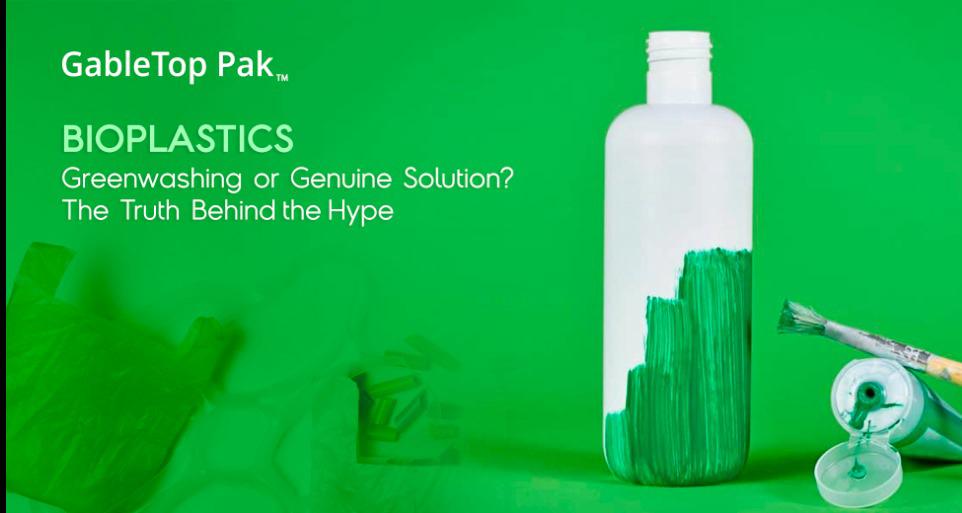Bioplastics are now seen as an eco-friendly option compared to regular plastic made from petroleum products as they claim to have a lower impact, on the environment. There is complexity, behind this claim though. While they are promoted as being made from plants and able to break down a lot of bioplastics actually contain a small amount of plant based materials.
The Reality of 20 Percent Bio Based Materials
I find it quite astonishing to learn that certain bioplastics consist of only 20 percent plant based materials and the remaining 80 percent derived from fossil fuels right?. It makes me question the validity of their assertions, whether they genuinely provide the advantages they profess to possess.
The Issue, with “Biodegradable”
The label “biodegradable” can sometimes be deceptive as certain bioplastics may not decompose effectively in compost or landfill settings due, to the lack of conditions required for breakdown to occur naturally over time, in the environment.
The Art of Greenwashing
The absence of guidelines and uniform labeling, for plastics enables companies to take advantage of the growing desire for environmentally friendly goods by engaging in greenwashing practices. A deceptive technique where items are promoted as being greener than they actually are. Which could mislead consumers and impede authentic progress, towards a circular economy.
The Significance of Embracing Transparency and Accountability
In the realm of producing bioplastics addressing these challenges requires a focus, on increasing transparency and accountability within the industry’s operations. Label guidelines play a role in ensuring that consumers have access to information about the bio based content and degradability of these products. Empowering consumers with details is essential, for enabling them to make informed choices.
Major Takeaway
Even though bioplastics offer hope, for a greener tomorrow the present situation leaves much to be desired. The limited use of materials. Misleading assertions about their eco friendliness prompt worries about their impact on the environment and the prevalence of deceptive marketing. It’s essential to scrutinize bioplastics and insist on openness, from producers. This way we can guarantee that these materials genuinely aid in creating a future of adding to the issue of plastic pollution.
Some sources that back up the claim that certain bioplastics might not be as environmentally friendly as they appear;
- “The Environmental Impact of PLA Bioplastics, from Start to Finish ” a report by Eunomia Research and Consulting in March 2024 delves into the cycle of acid (PLA) a widely used bioplastic. It sheds light on the repercussions such as issues stemming from agricultural practices and difficulties, in proper disposal methods when reaching the end of its lifecycle.
- “The Deceptive Nature of Bioplastics and Compostable Plastics ” a publication, by Beyond Plastics sheds light on the misunderstandings surrounding bioplastics and compostable plastics by highlighting their failure to decompose as marketed and their potential to add to pollution.
- The article “Are Bioplastics the Answer?” published on Resilience.org in April 2024 presents the viewpoint that although bioplastics are promoted as friendly alternatives some argue that they can have negative effects due, to the intensive agricultural practices involved which may lead to ecosystem harm and community displacement.
- Is Bioplastics Truly Environmentally Friendly? A discussion, on the sustainability of bioplastics explores whether they offer advantages or if they are simply a form of greenwashing at interpack 2026 convention.
- “The Reality of Bioplastics Revealed in ‘Greenwashing’ Is Fashionable Now” (From Debris Free Oceans); This article questions the idea that bioplastics offer a fix to waste issues by highlighting that numerous bioplastics do not break down in nature as advertised.
- “The article discusses why bioplastics may not be the solution, to the plastic issue due to their dependence on agriculture that requires a lot of land and their difficulty, in breaking down naturally.


